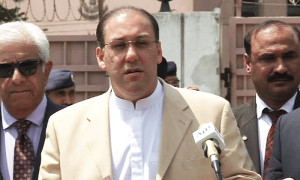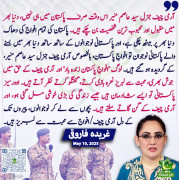He who buys and keeps the dinar issued by Daesh can keep it as a souvenir because the group will soon be eliminated and the dinar will remain as an evidence of contemporary history.
The value of Daesh’s dinar today is around $130, and its historical value on the market may be double. It will be an important souvenir of the most horrifying organization in this modern era.
For Daesh, the dinar is not a currency but a message, as issuing currency indicates a state’s sovereignty. It is part of a propaganda battle to convince people that Daesh is standing its ground, and to differentiate itself from its rivals. The Free Syrian Army (FSA) uses the Turkish lira in the zones it controls, while the regime of President Bashar Assad prints its currency in Russia after other printing houses in Europe stopped printing it.
However, the dinar issued by Daesh is more a souvenir than a currency. States issue souvenirs on special occasions, but no matter how many women Daesh kidnaps from Syria, how much gold it steals from Iraq or how much oil it tries to sell, it will not find enough pure gold to impose it as a currency or to trade it for other products in the market — unless it looted the gold storages of the banks in the cities under its control.
Daesh supporters claim the gold dinars express the stability of its governance and capability to develop its state project, but this is a big exaggeration. Daesh is suffering from the most dangerous crisis since its emergence, and its dinars will not save it. The number of parties to the international alliance against Daesh has increased, so it is capable of restraining and perhaps even crushing the terrorist organization.
Turkey’s involvement in the alliance makes it stronger and complete. Ankara’s participation may not be significant at shelling Daesh, but its approval and involvement mean that a real siege is now imposed on the terrorist group as several military operations are now being launched from Turkey.
http://www.arabnews.com/columns/news/800911
The value of Daesh’s dinar today is around $130, and its historical value on the market may be double. It will be an important souvenir of the most horrifying organization in this modern era.
For Daesh, the dinar is not a currency but a message, as issuing currency indicates a state’s sovereignty. It is part of a propaganda battle to convince people that Daesh is standing its ground, and to differentiate itself from its rivals. The Free Syrian Army (FSA) uses the Turkish lira in the zones it controls, while the regime of President Bashar Assad prints its currency in Russia after other printing houses in Europe stopped printing it.
However, the dinar issued by Daesh is more a souvenir than a currency. States issue souvenirs on special occasions, but no matter how many women Daesh kidnaps from Syria, how much gold it steals from Iraq or how much oil it tries to sell, it will not find enough pure gold to impose it as a currency or to trade it for other products in the market — unless it looted the gold storages of the banks in the cities under its control.
Daesh supporters claim the gold dinars express the stability of its governance and capability to develop its state project, but this is a big exaggeration. Daesh is suffering from the most dangerous crisis since its emergence, and its dinars will not save it. The number of parties to the international alliance against Daesh has increased, so it is capable of restraining and perhaps even crushing the terrorist organization.
Turkey’s involvement in the alliance makes it stronger and complete. Ankara’s participation may not be significant at shelling Daesh, but its approval and involvement mean that a real siege is now imposed on the terrorist group as several military operations are now being launched from Turkey.
http://www.arabnews.com/columns/news/800911
Last edited by a moderator:

































